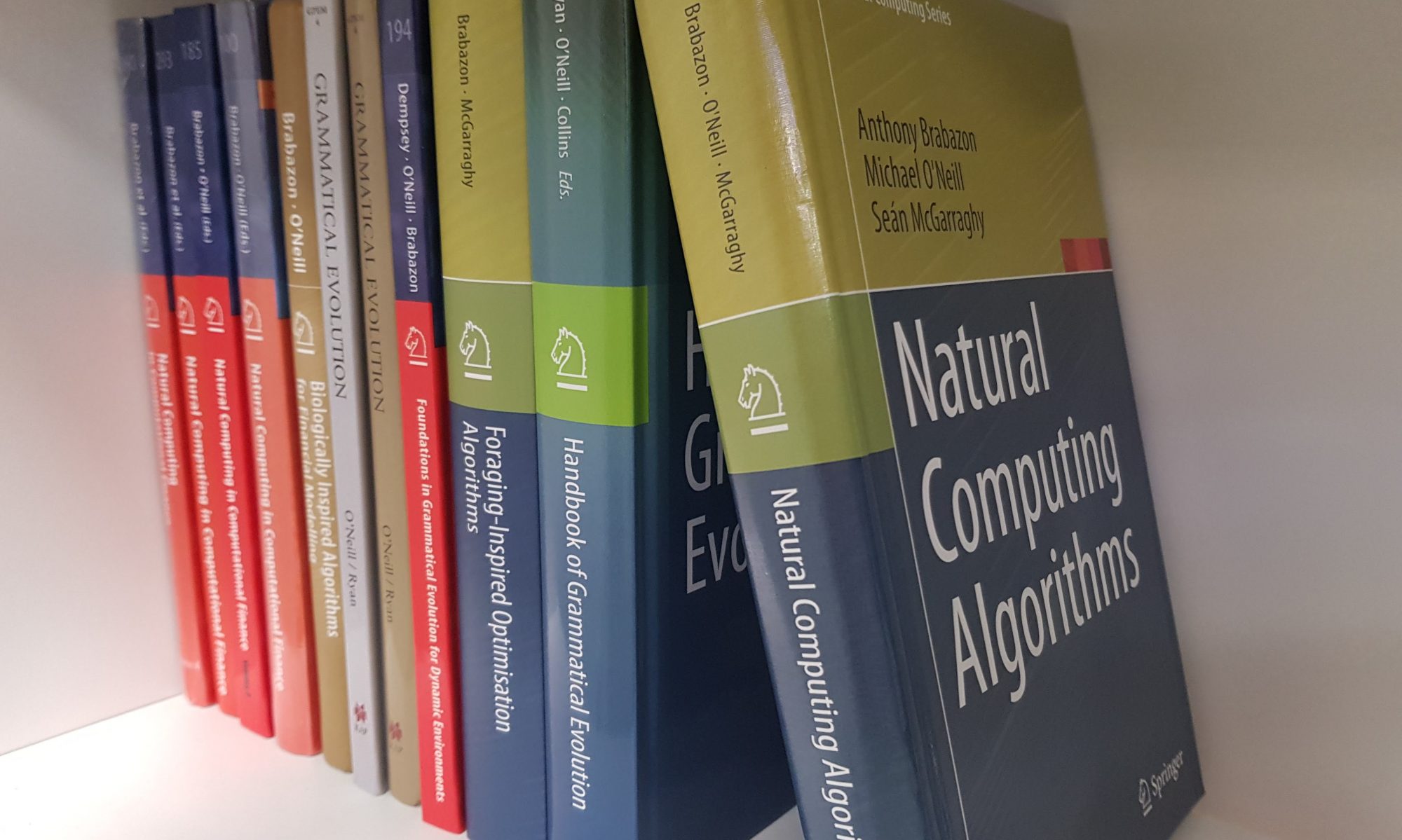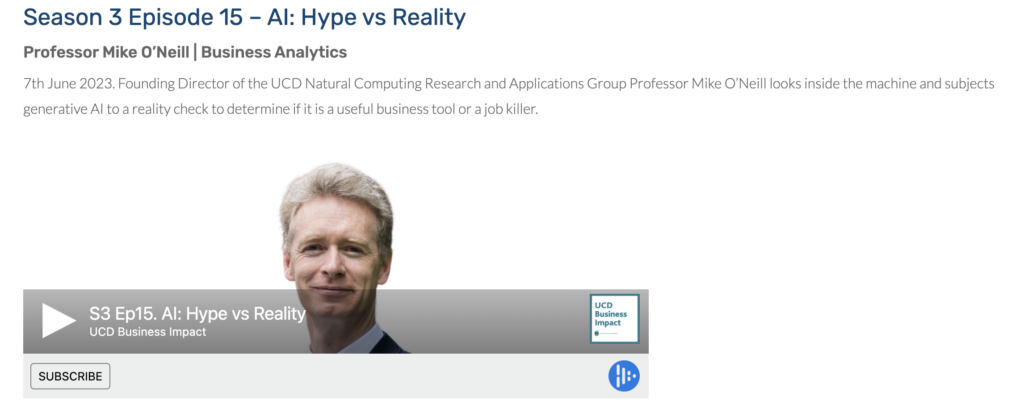Congratulations to Bing Chen and supervisor Dr Miguel Nicolau on winning a UCD China Scholarship Council award to undertake a PhD on Explainable Artificial Intelligence.
Podcast on AI: Hype vs Reality
Prof Michael O’Neill was interviewed by Emmet Oliver as part of the UCD Business Impact Podcast (Season 3, Episode 15), where some of the limitations of recent developments in AI, in particular large language models, are discussed.
Recruiting Ethical-by-design AI Postdoc Fellow to Reg-Fr-AIMs
As part of the Science Foundation Ireland funded Reg-Fr-AIMs project we are seeking applications for a Postdoctoral Researcher Fellowship to be based at University College Dublin’s Natural Computing Research & Applications Group in Artificial Intelligence.
The Reg-Fr-AIMs project is a collaboration between the teams of Prof Fergal McCaffery (Regulated Software Research Centre in Dundalk Institute of Technology) and Prof Michael O’Neill (University College Dublin). At UCD the collaborating faculty and doctoral supervisory team includes Dr Annunziata Esposito Amideo, Dr Miguel Nicolau and Dr Mark Connor.
Reg-Fr-AIMs sets out to develop a Regulatory Compliance Framework for Trustworthy AI Medical Device Software. This includes research into adaptive, trustworthy and compliant AI technology. To this end, the research to be undertaken at UCD has a strong focus on adaptive representations for machine learning, optimisation and reasoning.
The Post-doctoral Research Fellow will work with a team of PhD students and collaborating faculty in both UCD and DKiT, to assist in the adaptive representations research, and to investigate how we incorporate Ethical-by-design AI technology into medical device software systems.
Applications open until 27 April 2023, and further details for Job Ref :015809 at https://www.ucd.ie/workatucd/jobs/
New Research Scientist
Dr Shree Krishna Acharya joins the UCD Natural Computing Research & Applications Group as a Research Scientist on the DTIF GUARD project. Dr Acharya joins us from Mokpo National University, South Korea.
PhD Scholarships in Artificial Intelligence
As part of the Science Foundation Ireland funded Reg-Fr-AIMs project we are seeking applications for a number of PhD scholarships to be based at University College Dublin’s Natural Computing Research & Applications Group in Artificial Intelligence.
The Reg-Fr-AIMs project is a collaboration between the teams of Prof Fergal McCaffery (Regulated Software Research Centre in Dundalk Institute of Technology) and Prof Michael O’Neill (University College Dublin). At UCD the collaborating faculty and doctoral supervisory team includes Dr Annunziata Esposito Amideo and Dr Miguel Nicolau.
Reg-Fr-AIMs sets out to develop a Regulatory Compliance Framework for Trustworthy AI Medical Device Software. This includes research into adaptive, trustworthy and compliant AI technology. To this end, the research to be undertaken at UCD has a strong focus on adaptive representations for machine learning, optimisation and reasoning.
These full-time PhD studentship comprise an annual stipend of €18,500 for 4 years, postgraduate fees and a contribution towards direct research costs. Successful candidates will typically hold a minimum 2:1 Honours Degree in a Software, Computer Science, Analytics or closely related cognate discipline. All applicants are required to demonstrate a high level of competence in the English language.
Applicants should forward a copy of your CV and a one-page cover letter in PDF format outlining (i) your suitability for this position and (ii) your motivation for applying to Prof Michael O’Neill. The initial deadline for submission of application is 24th March 2023, however, applications will be reviewed on a continuous basis until the scholarships are filled.
Announcing New Funding for Reg-Fr-AIMs
The Irish Minister for Further and Higher Education, Research, Innovation and Science Simon Harris has today announced funding from Science Foundation Ireland for UCD’s Natural Computing Research & Applications Group led by Prof Michael O’Neill and Prof Fergal McCaffery (Director Regulated Software Research Centre (RSRC) in Dundalk Institute of Technology) for the Reg-Fr-AIMs project, which sets out to develop a Regulatory Compliance Framework for Trustworthy AI Medical Device Software. Alongside Prof O’Neill, the UCD team of researchers include Dr Miguel Nicolau and Dr Annunziata Esposito Amideo. The funding, awarded under SFI’s Frontiers for Partnerships Awards, is worth €1.29 Million, and will see the recruitment of a team of 2 postdoctoral researchers and 6 PhD students.
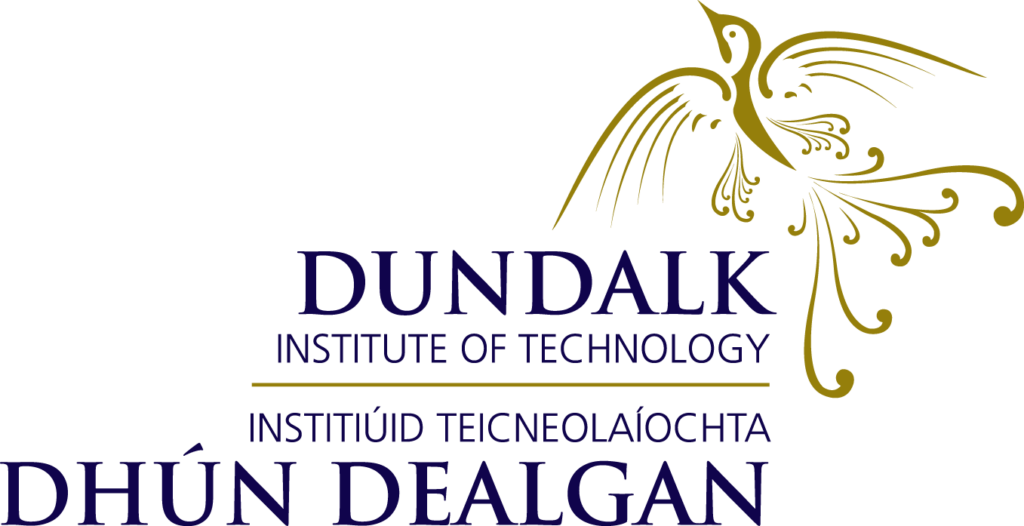
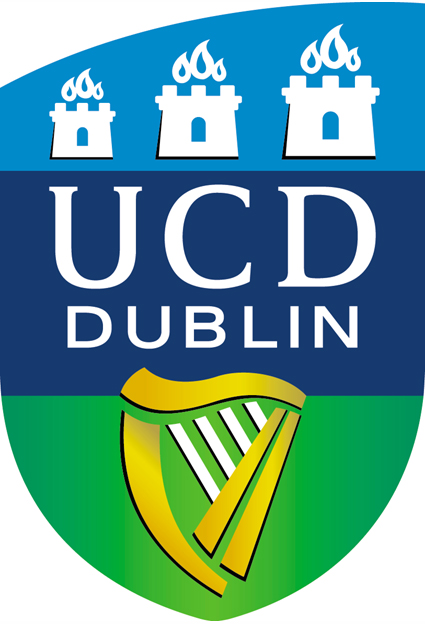
US and EU Patent Granted
As part of the collaborative research with Bell Labs that led to our HUMIES Gold Medal award , we have been granted a patent for Methods and systems for network self-optimization using deep learning.
New Research Scientist
Dr Dipak Sharma joins the UCD Natural Computing Research & Applications Group as a Research Scientist on the DTIF GUARD project. Dr Sharma joins us from ACSL Ltd in Tokyo, Japan where he was employed as R&D Engineer – AI Lead.
New Faculty
We are delighted to Welcome a new Faculty member, Dr Mark Connor, to the UCD Natural Computing Research and Applications Group, and to the Management Information Systems Subject Area in the UCD College of Business. Mark joins us from his previous post as Lecturer in Sport Performance Analysis at the University of Suffolk. Prior to this Mark’s roles include Senior Data Scientist with EY, and Research & Innovation Lead with STATSports.
Adaptive Athlete Training Plan Generation
Our paper “Adaptive Athlete Training Plan Generation: An Optimal Control Systems Approach” has been published in the Journal of Science and Medicine in Sport, Volume 25 Issue 4.
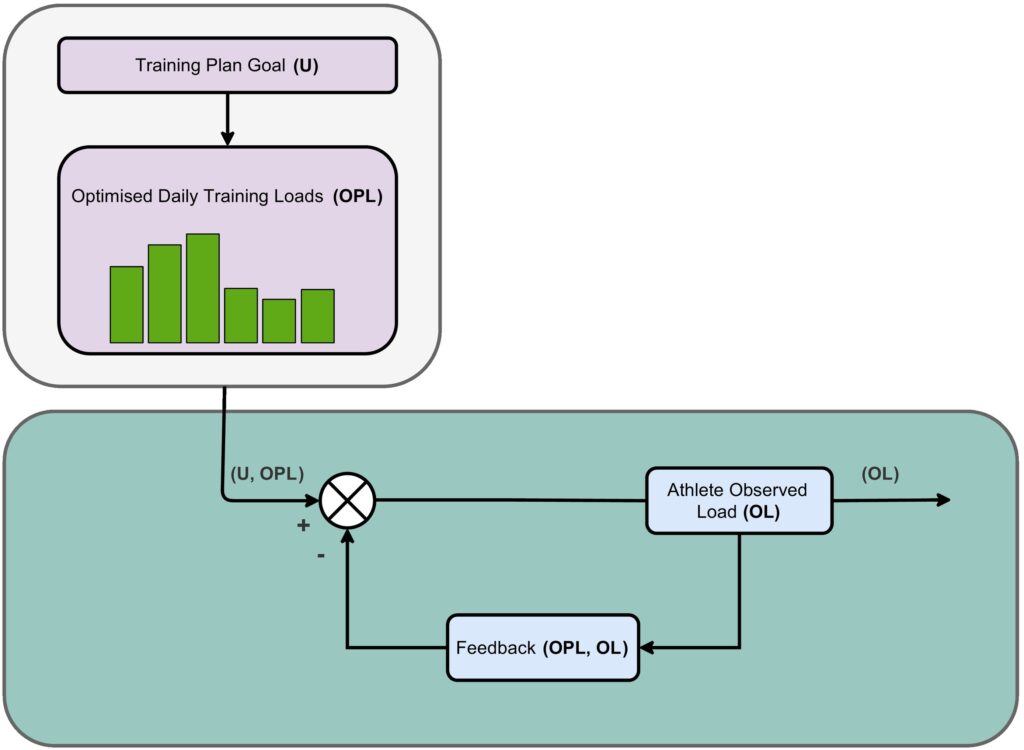
We address the problem of automatically adapting athlete training plans using approaches from control systems theory and artificial intelligence, comparing a novel evolutionary computation approach, to proportional adjustment, and a pseudo-random control over simulations that replicate real-World training scenarios.
